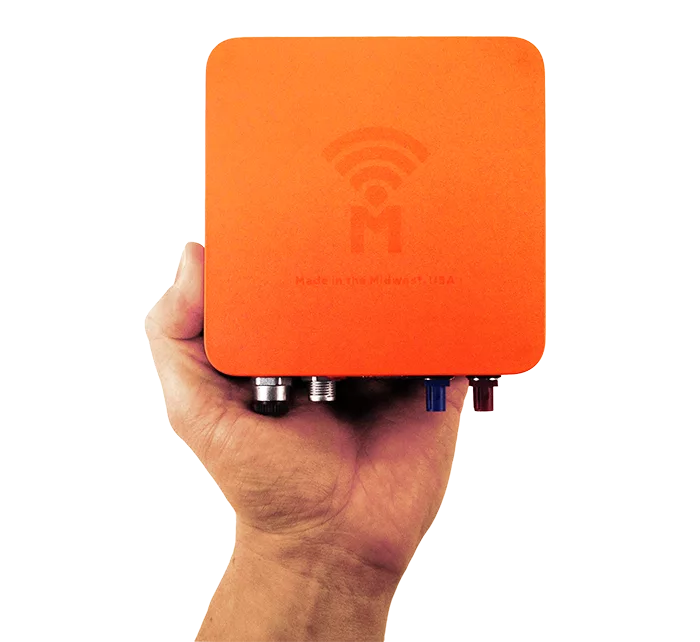Farmobile’s PUC (passive uplink connection), a device that can be installed on farm machinery of almost every make and model in 5 minutes or less, enables farmers to collect data sets from their farm called Electronic Field Records (EFRs). The company has guaranteed at least $2 per acre for these field records through their sale to vetted third parties with the farmer’s permission.
Precision farming dealers may soon have a new sales tool at their disposal to help customers monetize farm data. Earlier this month, Farmobile, a data collection, storage and sharing company, announced the promotional release of its Data Store platform that gives farmers the opportunity to sell their agronomic and machine data to vetted third parties on their own terms.
While the pilot program is limited at first to 250,000 acres in Minnesota, the company is guaranteeing at least $2 per acre, potentially more, in revenue for farmers from sold farm data.
Farmobile has developed its own type of data standard called the Electronic Field Record (EFR). An individual EFR consists of 1 year’s worth of data that notes planting date, crop, variety and population, as well as harvest date, total production, average yield and average moisture.
The data is collected by farmers through the use of a small device called the PUC (passive uplink connection) to build an EFR. PUCs can be installed on machinery of almost every make and model in 5 minutes or less, according to Jason Tatge, founder and CEO of Farmobile. This stored data is secured and shareable among the farmer’s team of advisors.
“There are a number of different companies interested in purchasing farm data for a variety of reasons,” Tatge says. “Some are selling fertilizers and chemical to local farmers and are interested in what the data sets can tell them and some are companies that have been running analysis tools that lack access to a consistent set of reliable data. Farmers will always be able to choose if they want to sell their data, but it’s our job to bring them offers from different parties who want to buy it.”
Farmobile has priced its PUCs at $1,250 per year with a 3-year subscription. Sales through its data store platform will also be subject to a 50% split in profits between Farmobile and the farmer while still maintaining their guarantee of $2 per acre.
“The devices are portable so farmers can move them from the planting tractor to the sprayer to the combine, but they will need one for each concurrently operating machine,” says Tatge. “One system in a planting tractor can cover between 1,000-3,000 acres, so if farmers have 2,500 acres they’ll be guaranteed $5,000 worth of revenue from the investment if they have the completed EFRs.”
Tatge notes that the potential for precision dealers is substantial in that they have an extra platform with which to interface with clients, as well as a sales tool to help a farmer justify the costs of additional precision equipment.
“We believe that as we prove this model, farmers are going to be able to invest in even more precision equipment to collect more detailed data because it’s going to become a revenue stream for them,” says Tatge. “It’s easier to spend money on new precision equipment when you’ve already seen some return on something you previously purchased.”
Farmobile’s brand neutral approach to data collection also holds promise for dealers and farmers looking to keep an open data relationship with one another in terms of equipment diagnostics.
“We are working with some dealerships already just providing diagnostic messages back to them,” says Tatge. “We can start recording the diagnostic messages as they occur, and put service staff on certain alerts to let them know when these things are happening to their client’s equipment.”
If the inaugural year of the program is a success, Tatge says they may be considering expanding to Wisconsin next.




![[Technology Corner] A Big Step Forward for Interoperability & Data Sharing](https://www.precisionfarmingdealer.com/ext/resources/2025/12/12/A-Big-Step-Forward-for-Interoperability--Data-Sharing.webp?height=290&t=1765565632&width=400)


